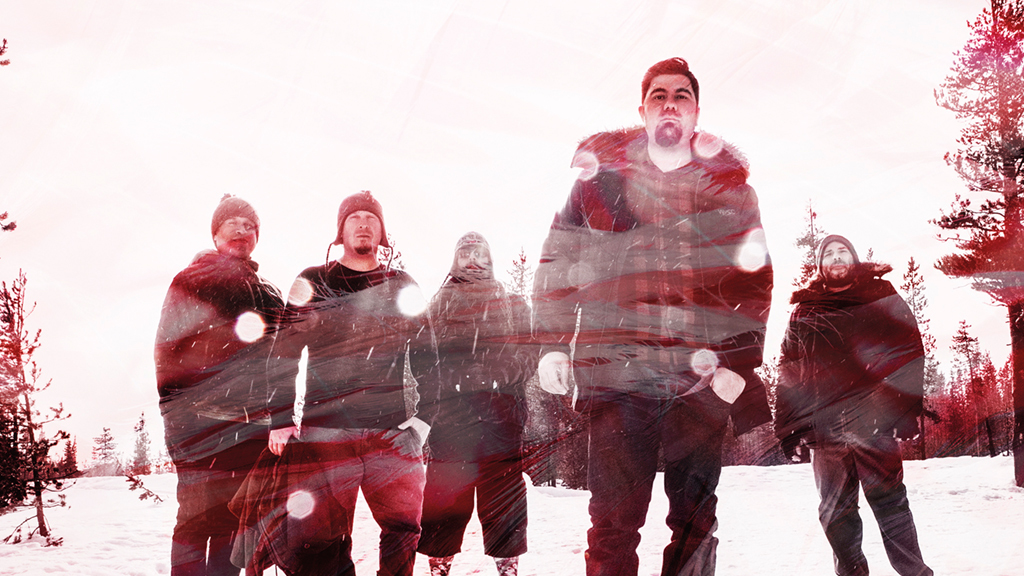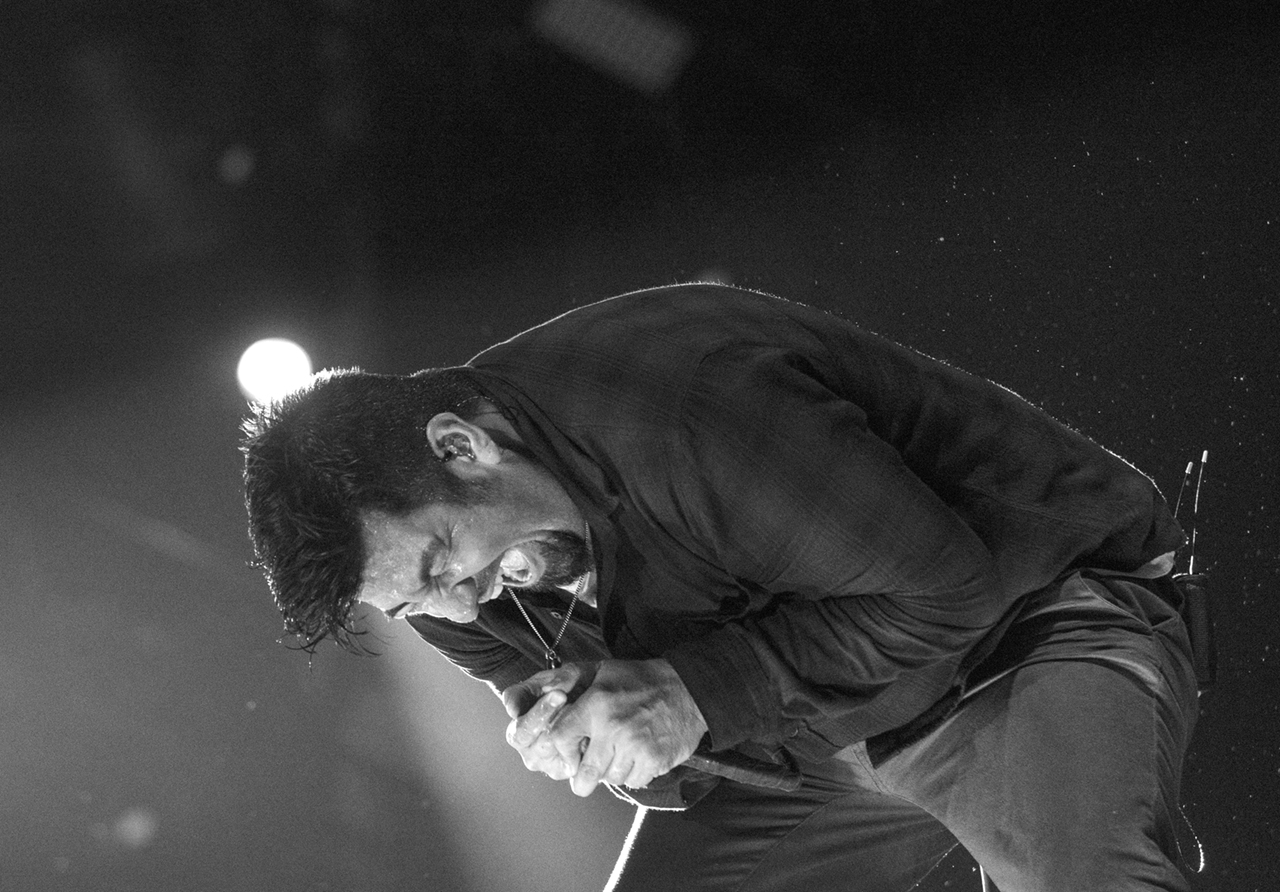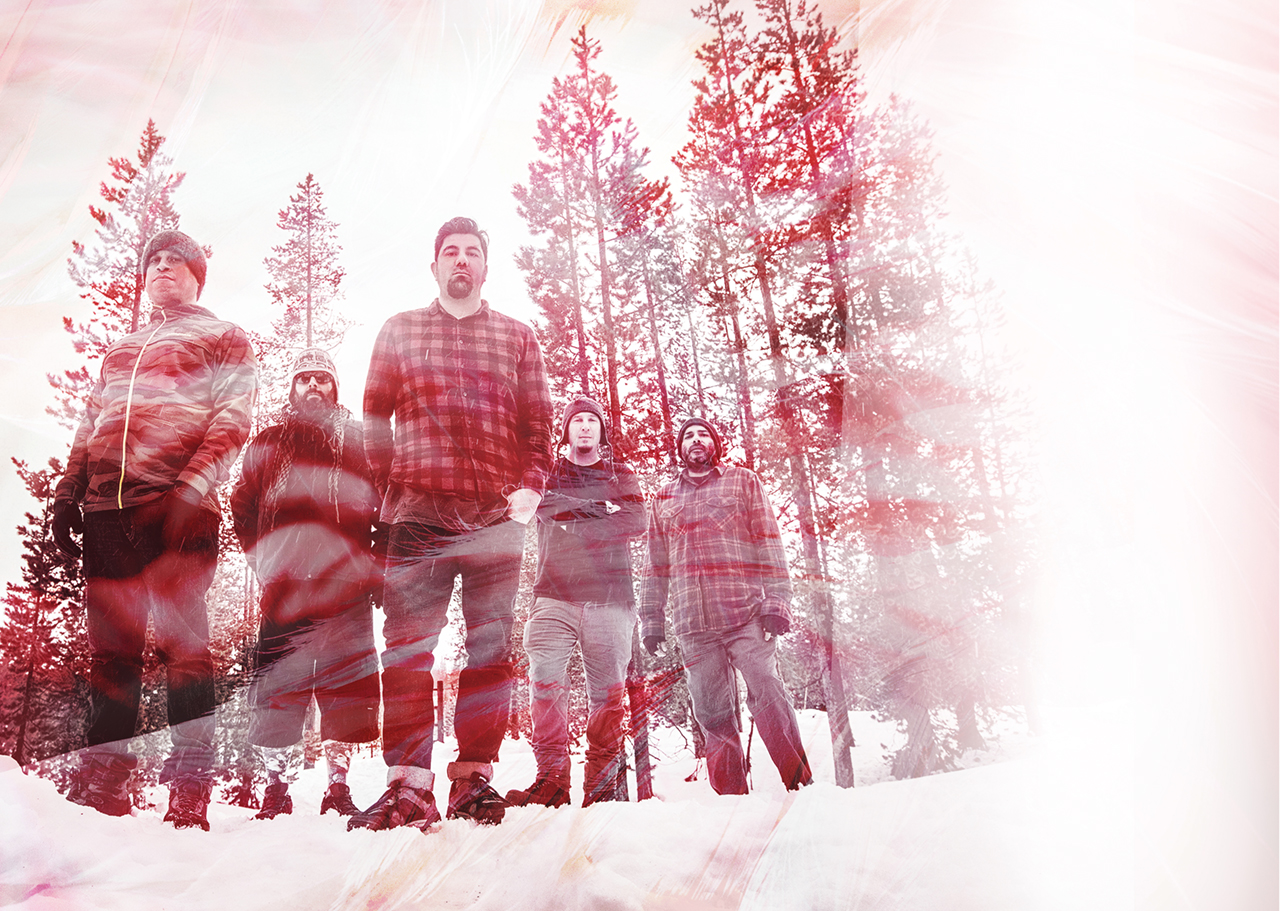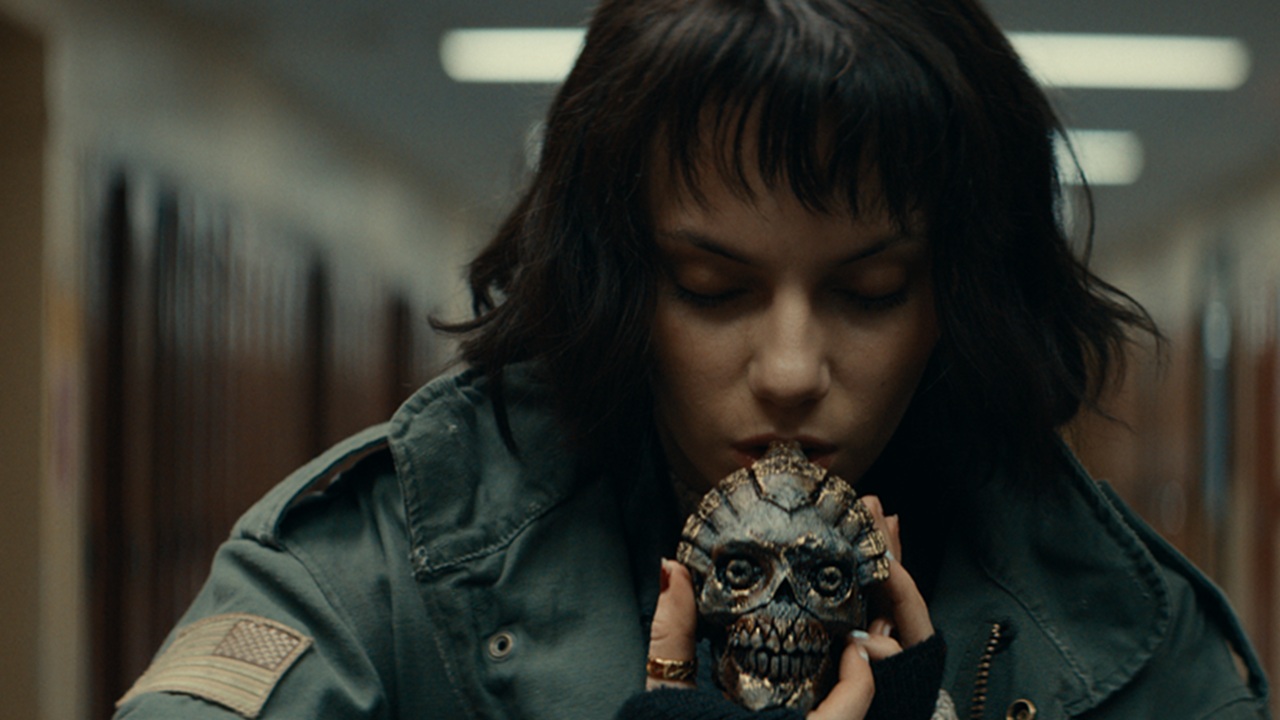What's Going On In Deftones?
From the Paris attacks to inner band turmoil, Deftones are in a strange place right now. We try to find out what's going on...

Select the newsletters you’d like to receive. Then, add your email to sign up.
You are now subscribed
Your newsletter sign-up was successful
Want to add more newsletters?

Every Friday
Louder
Louder’s weekly newsletter is jam-packed with the team’s personal highlights from the last seven days, including features, breaking news, reviews and tons of juicy exclusives from the world of alternative music.

Every Friday
Classic Rock
The Classic Rock newsletter is an essential read for the discerning rock fan. Every week we bring you the news, reviews and the very best features and interviews from our extensive archive. Written by rock fans for rock fans.

Every Friday
Metal Hammer
For the last four decades Metal Hammer has been the world’s greatest metal magazine. Created by metalheads for metalheads, ‘Hammer takes you behind the scenes, closer to the action, and nearer to the bands that you love the most.

Every Friday
Prog
The Prog newsletter brings you the very best of Prog Magazine and our website, every Friday. We'll deliver you the very latest news from the Prog universe, informative features and archive material from Prog’s impressive vault.
On the evening of November 13, 2015, following a quiet family dinner with his wife Risa and daughter Lola, Chino Moreno returned to his hotel room in Paris in a relaxed and contented frame of mind. The weekend ahead was to see his band, Deftones, play three sold-out gigs in the city’s beautiful Bataclan theatre, as a prelude to a short run of European shows. And with the final mixes of the quintet’s eighth studio album newly signed off, their frontman recalls that the Sacramento band were in “an excited place” as they prepared to re-introduce themselves to European audiences. Then the 42-year-old singer turned on the TV in his hotel room and time seemed to stand still.
As news reports filtered in of a shooting incident in Paris’s Place de la République, Chino reached for his phone and hurriedly texted his bandmates, who he knew to be staying in a hotel overlooking the square. When the ticker tape along the bottom of the screen broke news of an unfolding hostage situation at the Bataclan, his fears intensified. Deftones had been invited to attend that evening’s concert from their friends Eagles Of Death Metal, and although Chino had declined the invite in favour of a quiet evening with his family, he was aware that guitarist Stephen Carpenter and a number of the band’s crew had accepted the offer. Incoming texts informed the singer that Stephen’s party were safely back at their hotel, having left the gig three or four songs into the Eagles’ set, but the fate of Jesse Hughes’ band and audience remained uncertain as reports of further violent atrocities citywide intensified.
“It was very tense,” Chino recalls. “We were told to stay in the hotel and not go anywhere so we were just glued to the television and taking it in the same way the whole world was. We were just hoping for the best outcome.” The full horror would only become clear as dawn broke over Paris. 130 civilians were killed in what turned out to be a series of shootings and suicide bombings co-ordinated by the ISIS terrorist group, 89 of them murdered at the Bataclan. More than 350 people were injured in the attacks: eight terrorists lay dead too.
“It was crazy,” Chino says quietly. “We were lucky that we escaped the situation, but others were not so lucky. Music has always been something that people use to escape reality, and for people to have their lives taken while just out watching rock’n’roll was just horrific.”
Though emotions in the Deftones camp were understandably running high, clear-headed decisions still had to be made in regards to their upcoming schedule. With the Bataclan now a murder scene, there was no question that the Paris shows would be cancelled, but the prospects for their proposed engagements in Berlin, Cologne and London – where Deftones were due to perform at the 12,500-capacity SSE Arena in Wembley on November 21 – were less certain. The Wembley date, a signifier of the renewed momentum the band had achieved since 2010’s brilliant Diamond Eyes album introduced them to a new generation of rock fans, was set to be the quintet’s biggest UK headline date in 12 years, but its importance now had to be weighed against not only considerations of the band’s emotional state, but also concerns over the safety of their audience in the wake of the chilling events at the Bataclan. In the end, a decision was taken to put all the remaining tour dates on hold.
“Obviously for our guys who were there it was a whole lot more intense,” says Chino. “There’s a heaviness that goes along with that. I got on the phone with Stephen that evening and he said to me that he wasn’t really in any mindset to play a concert; I wasn’t either, and I wasn’t even there. I just wanted us just to get out of the city and get back home. I knew we could return when the time is right. It was only a few shows and it’s just music. A tragedy like that puts everything into perspective.”

This afternoon, Chino Moreno is in London, one of a clutch of European cities he will visit as part of a pre-release promotional tour for Deftones’ forthcoming album, Gore. One week on from revisiting Paris, his memories of the events of November 13 are understandably delivered in measured, sombre tones, but Chino is in an upbeat, positive mood today, looking relaxed and comfortable in a red and black checked shirt and black jeans as he lounges on a large grey sofa in the smart Kensington offices of Warner Music. Proof of Deftones’ importance to their record label, some 21 years on from the release of their debut album Adrenaline, is evidenced by the ridiculously tight security afforded Gore in the months ahead of its April 8 release.
Sign up below to get the latest from Metal Hammer, plus exclusive special offers, direct to your inbox!
When a European music journalist posted an image of the tracklisting in January, Warners shut down all access to pre-release online streams of the album, before almost anyone in the label’s international offices had even heard a note of the new music. Ahead of Chino’s promotional tour, journalists scheduled to conduct interviews with the singer were permitted to listen strictly on a need-to-know basis, and those streams were cut without warning after five plays. Given that not a single metal album broke the 500,000 sales mark in the US in 2015 (only new albums by Five Finger Death Punch, Disturbed and Breaking Benjamin, plus, amazingly, Metallica’s Master Of Puppets exceeded the 200,000 mark last year), one can understand why Gore is being so closely guarded by the label, but it does make detailed analysis of its 11 tracks rather more difficult, and this afternoon Chino smiles when it’s suggested that its beautifully dense, immersive layers will take some time to reveal themselves fully.
“I love confusing people, because I lovebeing confused by music,” he says. “Often the best movies and art and music is the stuff that only comes into focus when you give it time. I’ve heard some responses to the first single [Gore’s opening track Prayers/Triangles] like, ‘What is this shit? First songs are supposed to be heavy!’ and it’s made me laugh. For one thing, I think it’s heavy as fuck, in a different way, but also, why are things ‘supposed’ to be a certain way? It’s always good to break the cycle of what people expect, because honestly, expectations are fucking stupid. People are like, ‘Well, I expected the record to be like this…’ Oh, really? Well, too bad for you! We live in a world where people feel very entitled, and that’s a fucking ugly trait. We only ever act on instinct: it’d be fucking boring if we had to make records for other people.”
One aspect of Gore that is readily discernible in initial listens is that Chino’s creative impulses form the heartbeat of what is a nuanced and richly textured Deftones album. There is recognisably less reliance on Stephen Carpenter’s propulsive metallic riffing, and more emphasis on the woozy, hazy atmospherics which have characterised Chino’s work with his sideprojects Team Sleep, Palms and Crosses. While acknowledging that collaborations with friends and peers have bolstered his confidence as a songwriter, today the singer baulks at the suggestion that he took ‘control’ of the 2015 recording sessions conducted with producer Matt Hyde – “I’m always very cognitive that I don’t want to be dictating” – though concedes that much of the drive behind the new songs originated with sonic sketches he brought to the studio.
“I wouldn’t want to say ‘taking control’ because it’s not… I mean, to answer your question, yes, correct… but it wasn’t something where I came in and had this vision that I wanted everybody to follow,” he says, choosing his words carefully. “I did have a vision, but I had no clairvoyance on exactly what we were trying to do. But I was very inspired and very motivated. And honestly, probably a little bit more than Stephen on this record. He’s very much part of the record, but that’s just what happened with this batch of songs. A lot of it was Sergio [Vega, Deftones bassist] and myself initiating a lot ofn the ideas; I think that’s why the record sounds the way it does. My explanation for that? Ask Stephen… Because honestly I don’t know why he wasn’t as engaged as he has been at times.”
After this interview, in the interests of balance, we attempted to speak with Stephen Carpenter to get his take on this. It proved impossible, however, with management maintaining that the guitarist wasn’t engaging with the media during this phase of the album’s promotion. That stance became a little easier to understand when, on February 20, ultimateguitar.com posted an interview with Stephen in which the guitarist stated that he found working on Gore a “struggle”, admitting: “I didn’t want to play on the record to begin with.” “I look at all the songs on the record and they were all a challenge for me to get into,” Stephen explained. “It wasn’t the style or the sound I was hoping we would take. It wasn’t what I was expecting or wanting. My band is going in one direction,” he acknowledged, “and I am going another one currently.”*
If these comments sound alarming, it should be remembered that at various points in Deftones’ history, perhaps most notably during the sessions for 2000’s masterful White Pony album, discord in their camp has ultimately served to benefit the band. Asked by Ultimate Guitar if he might consider leaving the group, Stephen responded: “I’d never leave the band that I started, but the band started leaving me.” For his part, Chino seems unperturbed by the idea that this disharmony might present a threat to Deftones’ future.
“That tension isn’t always a bad thing,” he explains politely. “We had our share of arguments doing this record, a lot of them, but I feel like that’s a healthy thing. But when we do have arguments, those arguments should escalate our art. With that tension [between Stephen and I], we start building upon each other, or maybe even trying to outdo each other, and the next thing you know is that we’re building something that’s bigger than the both of us. We share everything in this band, no one gets paid more than any other guy for the work that we do, so in a perfect world we’d be doing equal amounts of work, but that’s just not the case. But if the room is stagnant and Stephen doesn’t feel like initiating, I don’t have any problem in initiating ideas. But, honestly, as much as there might be tensions, we actually all still enjoy each other’s company.”
Chino speaks of the band flying to Oregon, where he lives, to do the snowy photoshoot you see on these pages. “I hadn’t seen everyone since Paris, and I was genuinely so excited to knowm that my friends were coming,” he smiles. “I’ve known Stephen since I was 10 years old, I’ve known Abe [Cunningham, drums] since I was 11 or 12, and our friendships are still as strong as ever. That’s something I’m more proud of than any success the band has had.”

Towards the end of our conversation this afternoon, as Chino discusses his love of skateboarding, mountain biking and snowboarding in Oregon, Hammer brings up the idea – first expressed in author Iain Borden’s excellent 2001 study, Skateboarding, Space And The City: Architecture And The Body – that skaters and ‘extreme’ sports athletes often take a different philosophical approach to life, in that where ‘regular’ people see obstacles and obstructions in their physical surroundings, skaters and their fellow athletes see challenges and opportunities, and embrace the bumps and unevenness of their environment – both physical and metaphorical – as central to their journey in life. When today Chino speaks of Deftones deliberating ignoring songwriting formulas that have been successful for the band, and feeling compelled to experiment and expand their sound on Gore, it’s not hard to see parallels in their mindset.
“It’s a good analogy,” he agrees. “With mountain biking and skating and snowboarding you’re very much looking ahead and gauging the terrain, and because of that your senses are very heightened. And I really enjoy that feeling where every capillary feels like its about to burst and it’s a white-knuckle ride. When you’re jumping and you don’t know exactly how you’re going to land, or when you take the less obvious route, there can be more payoff in the end.” Talk turns back to Paris, and how the horrific events of November 13 inevitably halted the momentum that Deftones had accumulated in 2015. Gore is another triumph for this most brilliantly individualistic, stubbornly nonconformist band, and with a June 3 date set for the quintet’s unavoidably delayed return to the SSE Arena, Deftones are back on track. Their charismatic frontman has rarely seemed more at peace with his, and their, place in our world.
“Part of the reason we’re happy is that we don’t have to do this, we’re not doing this because we don’t have any other options in life,” he concludes. “We haven’t played a show since Paris, and I’m sure it will always be there in our minds when we’re up there onstage doing what we’ve always done. But we’ve gone through tragedy before with our band, and what I’ve noticed is that it brings us closer together. You really learn to appreciate the life that we have and just appreciate each other. There’s no way you can come through something like that and not have it affect the band. But we’ve been through dark times and we’ve overcome and we’re doing it again right now.”
GORE IS OUT ON APRIL 8 VIA WARNER BROS. RECORDS.DEFTONES WILL PLAY SSE WEMBLEY ARENA ON JUNE 3 AND DOWNLOAD FESTIVAL ON JUNE 11
*Stephen has since talked to Hammer to clarify his recent comments. Check out our exclusive interview here.
SIDE NOTES
Why you haven’t heard the last from Chino’s ‘other bands’…
WHAT’S THE STORY WITH TEAM SLEEP, PALMS AND CROSSES RIGHT NOW?
Chino: “All three projects have music in the works, so now it’s all about me figuring out a time to get to them again. Obviously I’m very much in Deftones mode with the new record and the upcoming touring, but with all three of those projects there’s not a conventional record cycle, and I like that we’re not obliged to operate in a certain way.”
WILL YOUR DEFTONES COMMITMENT MEAN A DIFFERENT WAY OF WORKING?
“Now that I live away from LA, it’s become a little harder to actually organise, and to be honest, that does suck a bit of the fun out of it. Initially, with Palms, say, Aaron [Harris] and I are hiking buddies and beer-drinking buddies so we’d hang out all the time and I recorded all my vocals at his house, in his closet, so there was no ‘studio pressure’ – we were hanging out anyway. With Crosses, Shaun [Lopez] lived blocks away from me, so I’d ride my skateboard over to his house, like when we were kids, and I’d go into the studio in his house and so again, it was all very natural.”
HOW WILL YOU MAKE IT WORK?
“If we want to maintain this, it’ll have to be done when I’m going through LA again, or via sharing files. But when all those guys present me with the music I will get back to them when I have time. It’ll happen, because I love making music with my friends.”

A music writer since 1993, formerly Editor of Kerrang! and Planet Rock magazine (RIP), Paul Brannigan is a Contributing Editor to Louder. Having previously written books on Lemmy, Dave Grohl (the Sunday Times best-seller This Is A Call) and Metallica (Birth School Metallica Death, co-authored with Ian Winwood), his Eddie Van Halen biography (Eruption in the UK, Unchained in the US) emerged in 2021. He has written for Rolling Stone, Mojo and Q, hung out with Fugazi at Dischord House, flown on Ozzy Osbourne's private jet, played Angus Young's Gibson SG, and interviewed everyone from Aerosmith and Beastie Boys to Young Gods and ZZ Top. Born in the North of Ireland, Brannigan lives in North London and supports The Arsenal.
